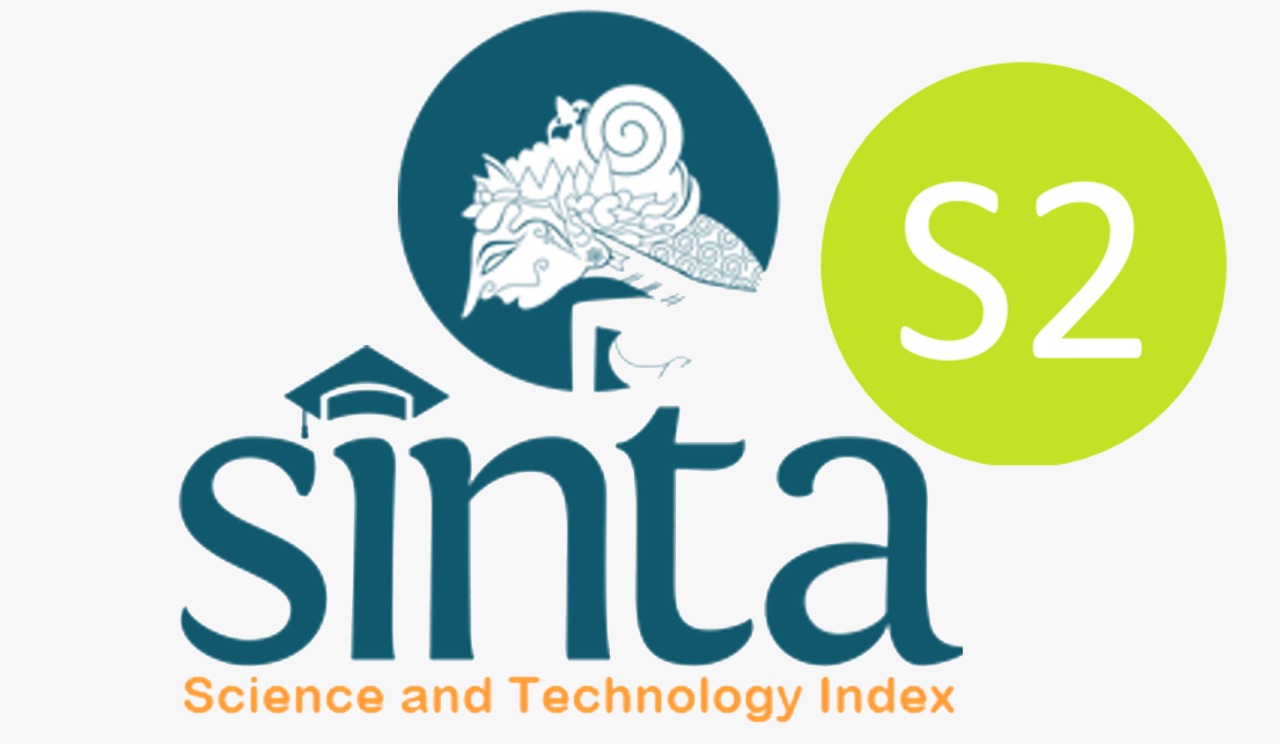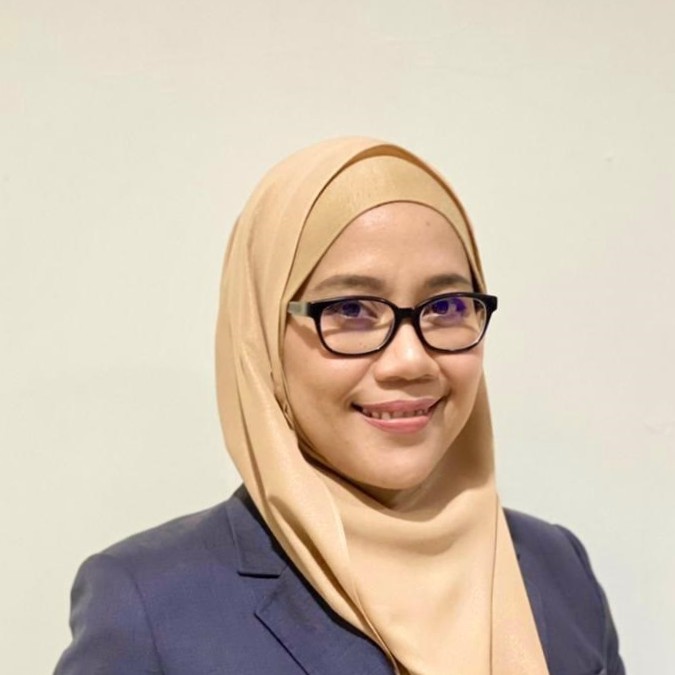DETERMINANTS OF INCLUSIVE GROWTH IN G20 COUNTRIES WITH GENDER INEQUALITY INDEX AS A MODERATING VARIABLE
Downloads
Introduction: Inclusive growth involves substantial discussions aimed at fostering inclusivity in global society. This research is important because it seeks to explain inclusive growth driven by investment, government spending, and trade openness, with the gender inequality index as a moderating variable in G20 countries over the period from 2007 to 2021.
Methods: This research is a quantitative study using Ordinary Least Squares (OLS) regression and Moderated Regression Analysis methods (MRA).
Results: The findings from the three variables included in this study indicate that two variables can influence inclusive growth, namely government spending and trade openness, while the investment variable does not affect inclusive growth.
Conclusion and suggestion: This is due to the fact that G20 countries have not been able to realize the impact of investment rates on inclusive growth. In addition, the gender inequality index is capable of moderating the influence of government spending on inclusive growth. Thus, in creating inclusive growth, the government must be able to allocate its funds wisely and equitably to all elements of society, both men and women.
Adika, N. D., & Rahmawati, F. (2021). Analisis Indikator Ketimpangan Gender dan Relevansinya terhadap Pertumbuhan Ekonomi Inklusif di Indonesia. Ecoplan, 4(2), 151–162.
Agyei, S. K., & Idan, G. A. (2022). Trade Openness, Institutions, and Inclusive Growth in Sub-Saharan Africa. SAGE Open, 12(2). https://doi.org/10.1177/21582440221099008
Ahuja, D., & Pandit, D. (2020). Public Expenditure and Economic Growth: Evidence from the Developing Countries. FIIB Business Review, 9(3), 228–236. https://doi.org/10.1177/2319714520938901
Amalina, D. H., Hutagaol, M. P., & Asmara, A. (2013). Pertumbuhan Inklusif: Fenomena Pertumbuhan Inklusif di Kawasan Indonesia Bagian Barat dan Indonesia Bagian Timur. Jurnal Ekonomi Dan Kebijakan Pembangunan, 2(2), 85–112.
Bado, B., Alam, S., Haeruddin, M. I. M., & Irwandi. (2023). ANALISIS PERTUMBUHAN INKLUSIF DI INDONESIA : BERKELANJUTAN PERSPEKTIF TUJUAN PEMBANGUNAN ( SDGs ). 15(2), 365–397. https://doi.org/10.34109/ijefs.202315218
Bangun, W. (2021). The Gender Inequality Index: Indonesian Efforts to Enhance Human Development within ASEAN. Journal of Southwest Jiaotong University, 56(1). https://doi.org/10.35741/issn.0258-2724.56.1.7
Ekaningtyas, R. M. (2021). Dampak Keterbukaan Perdagangan terhadap diskriminasi Upah Gender: Telaah Sistematis. Syntax Literate: Jurnal Ilmiah Indonesia, 6(5), 2418–2429.
Ernawati, E., Tajuddin, T., & Nur, S. (2021). Does government expenditure affect regional inclusive growth? An experience of implementing village fund policy in Indonesia. Economies, 9(4). https://doi.org/10.3390/economies9040164
Fu, S. (2023). Foreign Direct Investment And Inclusive Growth: The Role Of The Financial Sector Development. SHS Web of Conferences, 1–7.
Gonese, D., Sibanda, K., & Ngonisa, P. (2023a). Trade Openness and Unemployment in Selected Southern African Development Community (SADC) Countries. Economies, 11(10), 1–26. https://doi.org/10.3390/economies11100252
Gonese, D., Tsegaye, A., Khumalo, S. A., & Kapingura, F. M. (2023b). Trade openness and non-income poverty in Southern African Development Community (SADC) countries: A panel Autoregressive Distributive Lag (ARDL) analysis. Cogent Economics and Finance, 11(2). https://doi.org/10.1080/23322039.2023.2242668
Gracia, L. C., Brio, E. B. Del, & Victorio, M. L. O. (2018). Gender Factors and Inclusive Economic Growth: The Silent Revolution. Sustainability, 10(121), 1–14.
Gupta, J., & Pouw, N. P. (2017). Towards a Trans_Disciplinary Conceptualization of Inclusive Development. Current Opinion in Environmental Sustainability, 24, 96–103. https://doi.org/10.1016/j.cosust.2017.03.004
Hardyanto. (2022). G20 dan Bahasa Dunia. Retrieved March 24, 2023, from Sekretariatan Kabinet Republik Indonesia website: https://setkab.go.id/g20-dan-bahasa-dunia/
Harun, L., & Maski, G. (2022). Analisis Pengaruh Pengeluaran Pemerintah Daerah dan Pertumbuhan Ekonomi Terhadap Ketimpangan Pembangunan Wilayah (Studi pada Kabupaten dan Kota di Jawa Timur). Jurnal Ilmiah Mahasiswa FEB, 1(2), 1–17.
Herdiyati, L., & Ismail, M. (2022). Government Spending and Investment for Inclusive Growth in Indonesia: A Panel Data Analysis. Southeast Asian Journal of Economics, 10(3), 27–73.
Jufri, A., Mulyadi, S., Wibowo, M. G., & Rafiqi, I. (2022). Determinan Penanaman Modal Asing Di Indonesia Periode 1970-2020: Pendekatan NARDL. Jurnal Dinamika Ekonomi Pembangunan, 4(3), 232–244. https://doi.org/10.14710/jdep.4.3.232-244
Kemenpppa. (2021). Pembangunan Manusia Berbasis Gender. In Kementrian Pemberdayaan Perempuan dan Anak. Jakarta.
Lestari, T. K., Santoso, D. B., & Samputra, P. M. A. (2022). Link of Globalization to Inclusive Growth in Middle-Income ASEAN Countries. Buletin Ilmiah Litbang Perdagangan, 16(1), 79–102.
Mamat, M. Z., Boon, K. N., Azizan, A. A., & Chang, L. W. (2016). An Attempt at Implementing a Holistic Inclusive Development Model: Insights from Malaysia’s Land Settlement Scheme. Asia Pacific Viewpoint, 57(1), 106–120. https://doi.org/10.1111/apv.12115
Mintarti, S. (2017). Pengaruh investasi dan tenaga kerja serta pengeluaran pemerintah terhadap pertumbuhan ekonomi serta kesempatan kerja The influence of investment and labor and government spending on economic growth and employment. 13(1), 28–38.
Munir, M., & Fatima, A. (2020). Financing Inclusive Growth through FDI: Incorporating the Role of Institutional Quality. Global Economics Review, 5(2), 29–46. https://doi.org/10.31703/ger.2020(V-II).03
Nadya, A., Trihandayani, E., Usha, I. G., Agnetha, M., Soukotta, T., & Melani, S. (2019). Tiongkok Sebagai Pemimpin Dunia Baru Melalui Investasi Di Negara-Negara Di Dunia. Jurnal Asia Pacific Studies, 2(2), 202. https://doi.org/10.33541/japs.v2i2.1070
Nadzir, M., & Setyaningrum Kenda, A. (2023). Investasi asing dan investasi dalam negeri: Pengaruhnya pada pertumbuhan ekonomi di indonesia. Jurnal Ilmiah Mahasiswa Akuntansi ) Universitas Pendidikan Ganesha, 14, 1.
Nahumuri, L. L. (2019). Esensi Dan Urgensi Pengeluaran Pemerintah Untuk Pembangunan Daerah. Jurnal Ilmu Pemerintahan Suara Khatulistiwa, 4(1), 1–12. https://doi.org/10.33701/jipsk.v4i1.597
Ningrum, J. W., Khairunnisa, A. H., & Huda, N. (2020). Pengaruh Kemiskinan, Tingkat Pengangguran, Pertumbuhan Ekonomi dan Pengeluaran Pemerintah Terhadap Indeks Pembangunan Manusia (IPM). Jurnal Ilmiah Ekonomi Islam, 6(02), 212–222.
Nkoro, A., & Uko, A. K. (2020). Foreign Direct Investment And Inclusive Growth: The Role Of The Financial Sector Development. International Journal of Economic Sciences, 11(2), 144–162.
Nuraeni, J., Titik, C. S., & Madura, U. T. (2022). Analisis Respon Sektor Keuangan Dan Keterbukaan Perdagangan Terhadap Pertumbuhan Ekonomi Di Indonesia. 3(2).
Ozegbe, A. E., Fatai, O. O., Nwani, S., & Stanley, O. (2019). Achieving Inclusive Growth in Nigeria through Exports: An Empirical Investigation. South Asian Journal of Social Studies and Economics, 3(1), 1–14.
Padang, M., Anis, A., & Ariusni. (2019). ANALISIS PENGARUH KESETARAAN GENDER TERHADAP PERTUMBUHAN EKONOMI DI SUMATERA BARAT. Jurnal Kajian Ekonomi Dan Pembangunan, 1(3), 969–976.
Pratiwi, L. R. E., & Krisnawati, A. (2020). Pengaruh Literasi Keuangan terhadap Financial Self-Efficacy Pada Usia Produktif di Kabupaten Buleleng Bali. Jurnal Mitra Manajemen (JJM Online), 4(2), 171–183.
Pratiwi, M., & Andarini, R. S. (2020). Adaptasi Muslim Milenial Dalam Perjalanan Wisata Halal Di Negara Non-Muslim. Mediakom: Jurnal Ilmu Komunikasi, 4(1), 46–61.
Rasool, H., Adil, M. H., & Tarique, M. (2022). ARDL Approach to Drivers of Inclusive Growth In India. The Indian Economic Jurnal, 70(4), 1–14.
Safitri, M. I. D., Ananda, C. F., & Prasetya, F. (2021). Analisis Dampak Belanja Pemerintahan Daerah Terhadap Pertumbuhan Ekonomi Inklusif di Jawa Timur. Jurnal Perbendaharaan, Keuangan Negara, Dan Kebijakan Publik, 6(2), 85–96.
Salsabila, N. A., & Pramukty, R. (2023). Pengaruh Investasi, Indeks Pembangunan Manusia, dan Tingkat Pengangguran Terbuka Terhadap Ketimpangan Distribusi Pendapatan. EKOMA : Jurnal Ekonomi, Manajemen, Akuntansi, 2(2), 436–445. https://doi.org/10.56799/ekoma.v2i2.1586
Sangaji, J., Miyasto, & Kurnia, A. S. (2018). Macroeconomic Determinants of Gender Inequality Index in Eight ASEAN Countries. E3S Web of Conferences, 73, 1–4. https://doi.org/10.1051/e3sconf/20187311002
Shaleh, M. M. (2021). Pembangunan Ekonomi Inklusif Nasional, Provinsi Dan Kabupaten/Kota Se - Sulawesi Selatan. Aquilibrium, 10(1), 24–43.
Simarmata, Y. W., & Dinar Iskandar, D. (2022). Pengaruh Pengeluaran Pemerintah, Investasi, Jumlah Penduduk, Kemiskinan terhadap Pertumbuhan Ekonomi dan Ipm: Analisa Two Stage Least Square Untuk Kasus Indonesia. Jdep, 5(1), 78–94. Retrieved from https://ejournal.undip.ac.id/index.php/dinamika_pembangunan/index
Tambunan. (2016). Pembangunan Ekonomi Inklusif. Jakarta: LP3ES.
Vebriadi, K., & Nugroho, M. R. (2020). Determinan Investasi Negara Amerika Serikat Ke Negara Anggota Organisasi Kerjasama Islam Tahun 1991-2016. EkBis: Jurnal Ekonomi Dan Bisnis, 2(2), 114. https://doi.org/10.14421/ekbis.2018.2.2.1114
Vininda, S., & Yuliana, L. (2020). Penerapan Regresi Data Panel Pengaruh Kesetaraan Gender Terhadap Pertumbuhan Ekonomi Di Provinsi Riau Periode 2011-2015. SEMINAR NASIONAL OFFICIAL STATISTICS 2020, 2(1), 549–559.
Wahyudi, W. (2023). Pengeluaran Pemerintah Provinsi Dan Pengaruhnya Terhadap Pertumbuhan Ekonomi Dan Ketimpangan Pendapatan Di Indonesia. Sebatik, 27(2), 708–715. https://doi.org/10.46984/sebatik.v27i2.2369
Wairooy, F. A., & Haryono, S. (2023). Pengaruh Foreign Direct Investment, Inflasi, Dan Pengangguran Terhadap Ketimpangan Pendapatan Dengan Corruption Perception Index Sebagai Variabel Moderasi. Jurnal Magister Ekonomi Syariah, 2(1), 37–50. Retrieved from https://ejournal.uin-suka.ac.id/febi/jmes/article/view/1985%0Ahttps://ejournal.uin-suka.ac.id/febi/jmes/article/download/1985/1020
Wang, W., Ning, Z., Shu, Y., & Riti, M. (2023). ICT interaction with trade, FDI and financial inclusion on inclusive growth in top African nations ranked by ICT development. Telecommunication Policy, 47(4), 1–46.
Wulandari, L., Estrellita, M., Lomongga, R. F., & Panorama, M. (2023). Peran Infrastruktur, Modal Manusia, dan Keterbukaan Perdagangan Ekonomi Terhadap Pertumbuhan Ekonomi. Jurnal Dinamika Ekonomi Pembangunan, 6(2), 92–101.
Zhu, C. (2022). Conceptualising And Evaluating Inclusive Economic Development: A Productivity Perspective. Development Studies Research, 9(1), 219–229. https://doi.org/10.1080/21665095.2022.2112729
Copyright (c) 2024 Aji Binawan Putra, Ibnu Muhdir

This work is licensed under a Creative Commons Attribution-ShareAlike 4.0 International License.
Authors who publish with Jurnal Ekonomi dan Bisnis Airlangga agree to the following terms:The journal allows the author to hold the copyright of the article without restrictions.
The journal allows the author(s) to retain publishing rights without restrictions
The legal formal aspect of journal publication accessibility refers to Creative Commons Attribution Share-Alike (CC BY-SA).
Jurnal Ekonomi dan Bisnis Airlangga (JEBA) is licensed under a Creative Commons Attribution-ShareAlike 4.0 International License

















